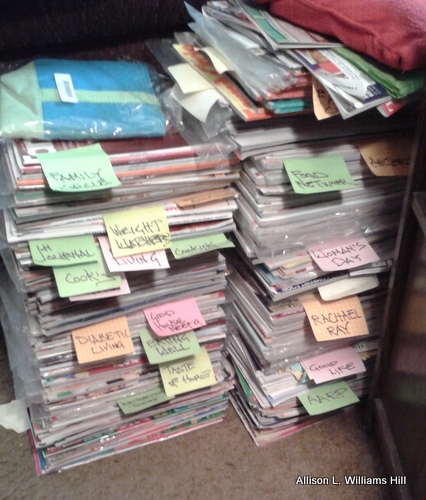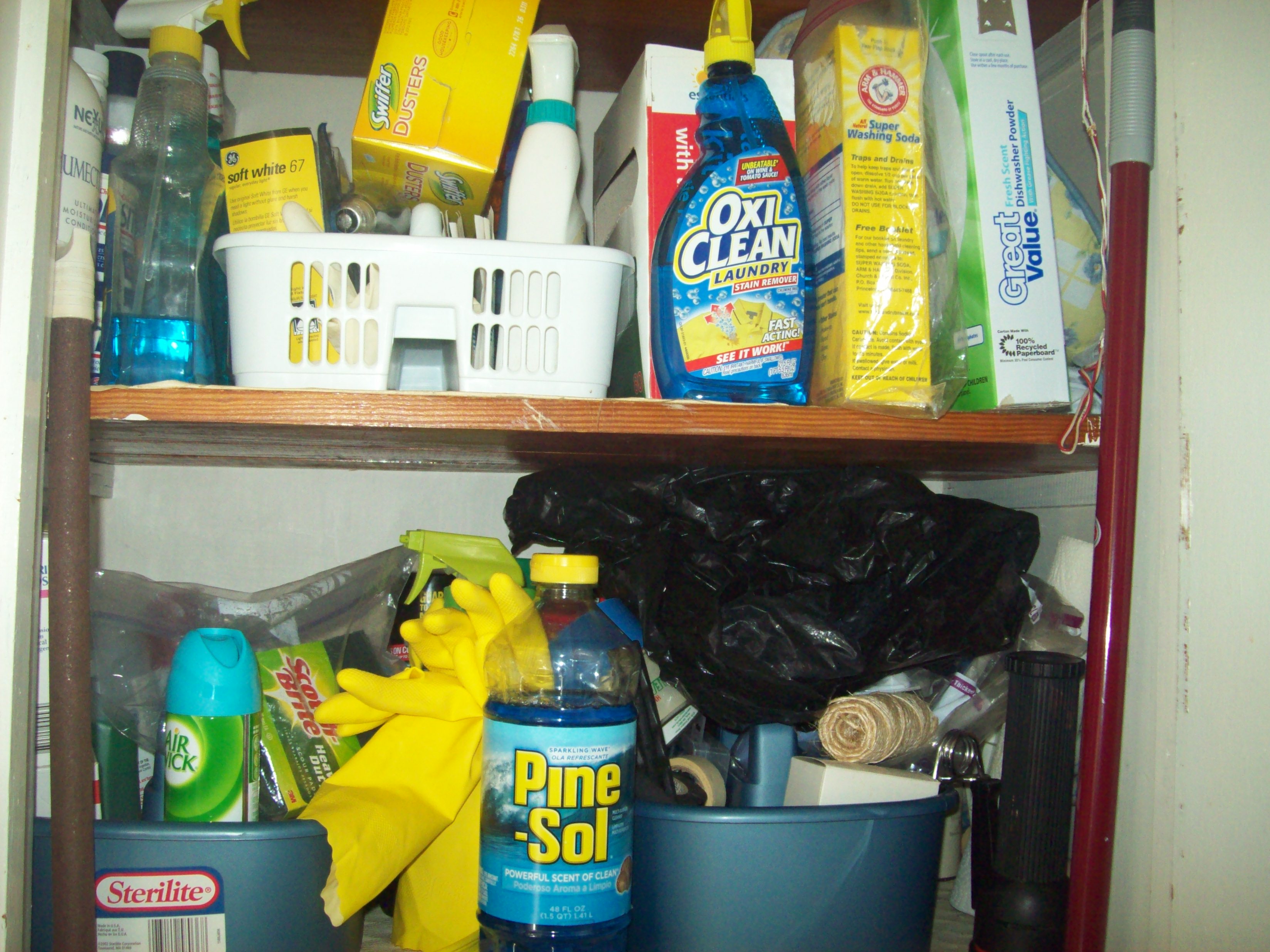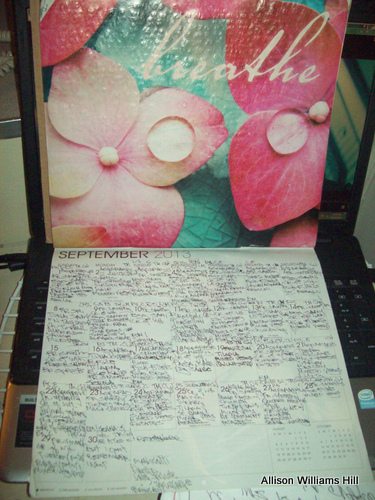Caregiving and Housekeeping

hile caregiving and housekeeping are micro and macro activities in relationship to each other, they influence each other. Caregiving is provided directly to the individual within the home.Housekeeping maintains the home where the cared-for caregiver lives, works,dines,and sleep.
Despite infomercial testimonials for getting homes clean and smelling beautiful, it isn't easy to get excited about this. Hoarder reality shows may inspire one to maintain a home so that it does not get out of control. Homes with physically challenged people cannot afford to compromise on living space. I was going to state circulation space but - sleeping, eating, bathing, relaxing – all types of activity require areas and their freedom from clutter to enable
movement and freedom of the mind. I don't think one can comfortably and intelligently address what a caregiver needs to handle when mounds of matter occupy sofas, chairs, and the like.
Housekeeping does not create much excitement, and adding caregiving to the responsibilities may approach the overwhelming state. Creative - or, in my term, creative caregiving - with housekeeping can assist one or the team to manage tasks better.
Housekeeping Machine Glitches
I am reminded of a statement attributed to Edward Murphy, "Things will go wrong in any given situation if you give them a chance," or "anything that can go wrong will go wrong." While caring for my husband, we experienced a broken washing machine and dryer. There were a couple of instances where the washing machine and the dryer were down at different times. The earliest appointment for service was six weeks later. I washed sheets, blankets, and towels in the tub. I placed them on large waste bag-lined walls of the carport in the back-yard. I covered bricks with plastic shopping bags and placed them on the linen to keep them in place.

Swim/Specie by Allison L. Williams Hill
During heavy rains, the basement flooded. The gutter rusted, and water splashed down to the foundation, infiltrating through the exterior foundation wall and a crack in the concrete slab.I used a dustpan and a five-gallon bucket, things I learned to do when we were on Tortola during the rainy season. The floor at the lower parking level had ceramic tile on the concrete. However, the lower parking space sloped towards the veranda outside the office, and sheets of water ran down the parking surface into the office. The dustpan scooped more water each use than anything I've used to collect water.I put the water into the bucket and threw it downhill. In the states, water bubbling up through the cracked concrete slab, I carried the bucket to the first floor and flushed it in the toilet.

Men and women have entered the wonderful world of housekeeping. Many products claim to improve the quality and speed of home maintenance. The home exists in parts: floors, walls, surfaces, bathrooms, kitchens, and storage.
There are several house organization resources both in books and online. I grew up with many women's magazines my mother read monthly. Family Circle, Woman's Day, and Woman's World have great solutions. I clipped many solutions and articles, a habit developed from watching my mother, and maintained them in a binder or a folder.

Creative Caregiving
and Housekeeping
Tips
Below are some suggestions on how to address the many steps involved in keeping a home. Separate the home into parts: floors; walls; surfaces; bathrooms; kitchens; storage; washing; dusting; vacuuming, etc. Work from the top down.
1. Organize related chores to compress the time used to execute them. Look to maintain an even level of cleanliness throughout the home.
• Assign chores to days in the week or month.
• Group them around typical tasks like:
+Clean the kitchen after dinner to collect all waste and remove it all from the house;
+ Spray-clean horizontal surfaces in the most used areas, then
+ Clean floor surfaces via sweeping or vacuuming at the end of the day.
2. For tasks that require help, look for and schedule assistance within your budget.
3. Decentralize where you keep cleaning products.
• Split large bottles of cleaners into several small bottles and place them where needed and convenient.
• Consider using natural cleaners like baking soda and white vinegar. You can find information on them at Herb Quarterly and Mother Earth News.
• Rather than purchasing a specific cleanser for every use, consider using one and diluting it for several needs.
Miracle Soap II is an excellent cleaner. I have used it for everything from my floors to laundry and my body. When I buy large gallon quantities, I plan to phase it in: after using what I purchased, I will keep and refill the bottles with recipes (by varying the water) for specific applications. In other words, the product used for floors or windows will keep the same label for easy identification. Read testimonials of people using Miracle II.
4. Waste collection can be easier. Depending on where the waste is collected, schedule the container's collection.
5. To minimize trips to the central storage closet, place several waste bags in the bottoms of trash baskets to pull up after the one in use is full and removed.

Caregiving and Housekeeping Documents
6. Papers and Files
The care receiver could generate lots of documentation that covers
medical, financial, and other information. Use a calendar for reminders.
A loose-leaf binder with dividers keeps:
1. schedules;
2. Appointments;
3. Shopping lists; use several resources. Save time by listing the best place to get the products.
3. Lists of prescriptions, supplements,
5. Receipts; move them into labeled envelopes each month. All prescriptions and other receipts will be together This will save you time when filing taxes.
6. Clipped coupons; use your cell phone to download coupons from the stores you patronize. Remember to use your codes received when you become a member for more savings.
7.

Meals and meal plans:
7. A large calendar to record my husband’s meals and supplements is beneficial. Reduce food repetition by using foods no more than twice in a four-day period. It reduces food allergies. Food allergies include irritation, inflammation, anger, sleepiness, weight gain, and loss. Pharmaceutical corporations and traditionally trained doctors would prescribe drugs for these conditions that could be resolved naturally with food.
8. Coupons; meals, and plans;
9. Telephone numbers – supporters; friends, medical facilities, and personnel involved. Include lists of prescriptions and supplements;
If it is necessary to keep a notebook, choose one from
available sizes that work for you. All
of the information is in one accessible place, removed from your
head. Transfer all bits of paper onto pages in the binder. If it is
important to keep a notebook, choose one that works for you from
available sizes. Make it easy on yourself. Go to http://organizedhome.com for more great ideas.

Meditation with Clem October 2016 by Allison L. Williams Hill
Links

The above meditation mandala will be available soon.

















